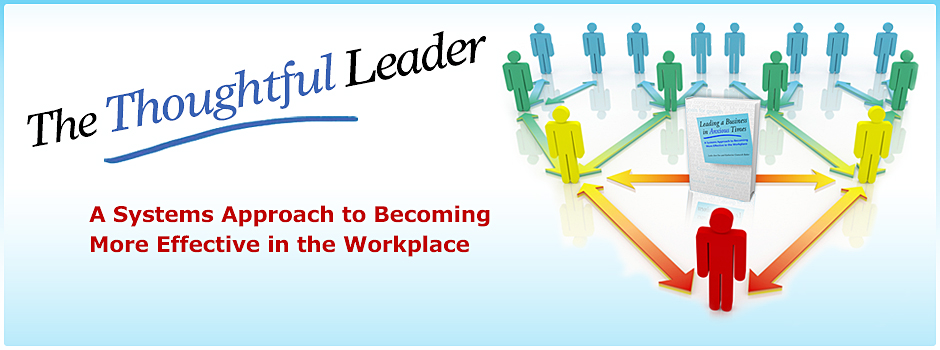Over the past few weeks the news has been all about Egypt and the infectious nature of leadership change throughout the Middle East. This part of the world may seem very distant for business leaders in the United States, but what can we learn about leadership from watching anxiety in the street and in the palace? What are the similarities and differences between societal anxiety and workplace anxiety?
We know that anxiety in business leadership can take many different forms, including excessive adaptation to pressure and a lack of clarity about where one stands and what one believes. Anxious business leaders can also move toward increased rigidity and a need for absolute control or micromanaging of the tasks of others – what we call “over-functioning” in business. In an anxious workplace with poor leadership there is usually a lot of in-fighting among employees at every level, as well as competitiveness, gossip, absenteeism, passivity, lack of responsibility, a disconnect between leadership and employees, and generally the creation of an environment in which the business is not effectively doing the business of the business.
What about anxious leadership at the societal level? How do national leaders need to manage themselves in order to serve the needs of their people? When anxious do they also move in the direction of over-adaptation or over-control? We have seen anxious leadership throughout the Middle East in recent days and weeks that has moved toward brutality, repression, and control, a disconnect between leaders and the citizens of the country, and the creation of an environment in which the leadership is not serving the needs of the country.
In the chaotic upheaval of national leadership change, it’s not yet clear how things will turn out, but clearly a process has started in which new patterns of accountability are going to be necessary. Leaders in the street seem to be asserting a commitment to non-violence. Can they also maintain a calm thoughtful approach to decisions about leadership change that will keep an open channel between the new leaders and citizens of these countries?
During our recent national celebration of Martin Luther King Day back in mid-January, I had an opportunity to watch a number of films featuring King that were taken during the chaotic 1960s in our country. I was struck by how young King was in relation to other leaders of the time, but how calm, clear and articulate he appeared to be even when under enormous stress. He was a man of action as well as a thinker, and he stayed connected to all sides of the many social and political issues of his day, helping our society to stay on course during that time. He embodied systems-based leadership at its finest. Will anyone of his stature emerge to provide effective leadership in the countries of the Middle East in the coming months? There is often a reciprocity between the need for leadership and its appearance in an anxious system, and we can only hope that this will be a responsible process that will calm the current chaos.
Is there any aspect of what we are witnessing in the world news that has affected your own leadership within your organization? Have you been inspired to think more deeply about your leadership and to chart your own course more clearly? I look forward to hearing your thoughts on this subject.
Katharine Gratwick Baker
Book's Home Page
Leadership Blogs
Subscribe to our Blog
Categories
© Copyright 2013 - The Thoughtful Leader
